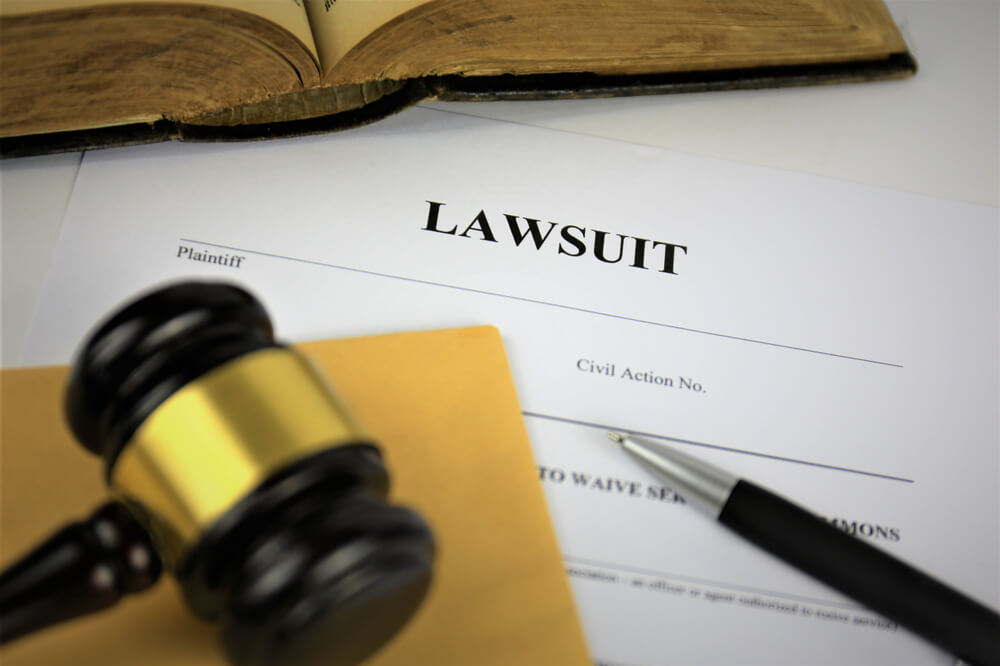When facing the pain and hardship of an injury accident, you want to know when you can expect the compensation you need. The answer to that question depends on many factors in your case. A personal injury lawsuit can take weeks to as long as a year or more to resolve.
First, it helps to understand the steps involved in a personal injury lawsuit. You should also know more about the factors that can delay or speed up the process. Read on to learn more about how long a personal injury lawsuit could take.
Steps in the Personal Injury Lawsuit Process

A personal injury lawsuit takes time and preparation. Your case may involve much more than simply filing a lawsuit in court and appearing before a jury. If you hire an injury lawyer, they can help you navigate the process and ensure your case progresses as smoothly as possible.
Here’s what a typical personal injury case process entails:
Getting Treatment for Your Injuries
Of course, this step comes as no surprise. Hopefully, you’ve already received treatment for your initial injuries. If you were in a car accident, slip-and-fall, or another accident, you may have accepted emergency medical care at the scene or visited a doctor soon after. If you have not done so, get treatment for your symptoms immediately.
Recovering compensation depends on connecting your injury to the accident. The longer you wait to see a doctor, the harder the task of arguing that the defendant should bear the liability and the longer your case will take to resolve. Then, you should also continue getting necessary medical care after your initial injuries. This is important for your health and has a significant influence on your case including its timeline. Here’s why.
Understanding your prognosis and any future treatments, physical therapy, or surgeries you may need will affect the amount you ask for in a settlement or lawsuit.
So, before you bring the case and begin negotiating, you must wait until your doctor has a sense of your health outlook and the price tag associated with your future or ongoing care. Therefore, your lawyer may advise that you wait several weeks after the crash to see how you respond to your treatment and learn what a doctor says about your prognosis.
Hiring an Injury Lawyer
Hiring an attorney can be invaluable when you’re bringing a personal injury lawsuit. An injury lawyer understands the process and how to navigate every step so that you go after the highest possible recovery available.
Contact a personal injury lawyer to get a case review. During this call, you can tell the law firm about your situation, and they can explain the next steps involved.
The lawyer could begin working on your case immediately, and they may present you with their plan for a legal strategy within the coming days or weeks. Of course, this all depends on the law firm, the availability of the attorney, and other factors.
When you call for your case review, ask the firm when you can expect the next steps in your case to take place. They could give you more insight into how long it could take to move through a case like yours.
Investigating the Accident and Injuries
You need evidence to prove the other party’s liability and seek compensation from them. The defendant’s insurance company or lawyers must see why you deserve compensation, and making your case depends on collecting and presenting solid evidence.
If you hire a lawyer, they begin by investigating your case and gathering supporting evidence to prove that:
- The other party (such as a driver or property owner) was negligent.
- You suffered injuries and damages.
- The defendant bears liability for your damages.
While that may seem straightforward, it can be challenging to prove. Again, the liable party won’t give money to a claimant without good reason and a strong argument.
An attorney may gather evidence from several sources as they investigate the accident and prepare your case, such as:
- An incident or police report
- Photos or video footage of the accident
- Traffic camera footage
- Eyewitness statements
- Black box data or dashboard camera footage
- Company logbooks
- Records of past violations by an individual or business
- Medical records
- Statements from your doctor
- Expert witness testimony (such as from an accident reconstructionist, economist, psychologist, or another expert who can attest to your case’s facts or value)
Gathering evidence can take time. Your lawyer may need to track down eyewitnesses, interview field experts, subpoena surveillance camera footage for review, and take many other steps. Your lawyer should stay in communication throughout the process and inform you of any delays. Depending on the case’s complexity, preparing your injury lawsuit could take weeks or months.
Submitting a Demand for Damages
Your attorney may use multiple strategies when seeking compensation for a personal injury case. First, they may submit a demand for damages with the liable party’s insurance company and seek an out-of-court settlement. A demand letter describes your case’s facts, outlines your damages, and names the compensation you believe you deserve.
This is where your case’s timeline could vary substantially. It can take time to get the financial results you need and deserve. After all, the liable party may or may not want to cooperate. They may delay investigating your case or responding to your demand for damages. They could make you a low offer or refusal to accept responsibility. All of these challenges can take time to work through. But generally speaking, cases that settle through negotiations or mediation will resolve sooner.
If you need to take your case to trial, your case will likely take longer. It can take time to secure a trial date, especially if the court system faces a backlog of cases. Cases that go to a jury trial can take a year or more. However, it can prove worth the wait. The jury may award you damages, even if the defendant’s representatives did not want to work with your lawyer during the negotiation.
Preparation for Trial
Some attorneys may advise immediately filing suit and beginning the process of litigation before even issuing a demand for damages. However, you could file a lawsuit if the other party doesn’t want to negotiate fairly or refuses to offer a fair settlement.
If you file a suit, your attorney and the other party’s legal team will exchange information about the case, a stage known as the discovery phase. This includes any evidence the parties plan to present at trial, including witness information or other testimony. Your lawyer may also help you prepare for any appearance you need to make before the jury.
Going to Mediation or Appearing at Trial
Your lawsuit can resolve in several ways. After you file, you could reach an agreement through mediation. The other party may determine that the evidence in the case strongly rests in your favor, and they do not want to take the time and resources to go to trial when you will likely prevail.
If you go to court, your attorney can handle all aspects of the court process for you. This may involve opening and closing statements, cross-examining witnesses, and helping prepare for any questioning. Again, going to trial often takes more time due to the court’s timeline and the many procedures involved, such as jury selection.
Factors That Can Affect Your Injury Lawsuit Timeline
No two injury cases have the same factors. So, depending on the details of your case, you could see a shorter or longer personal injury case timeline. Consider some of the biggest reasons that affect how soon your case resolves:
The Complexity of Your Case
A complex case will likely take more time than a simple one. Your case could prove complex for several reasons, including the nature and severity of your injuries, as well as the number of liable parties involved. For example, let’s say that you had an accident with a drunk truck driver, and you suffered debilitating neck and back injuries for months. However, you had prior back injuries, and the accident exacerbated your previous condition.
That’s a complex case. The truck driver and the trucking company may bear liability, which means several parties will be part of the legal process. Also, a lawyer must prepare to handle the pushback you’ll likely receive about your injuries. After all, whenever the victim has a prior injury, the defendant could make the case that the accident wasn’t the true cause and therefore, they don’t bear responsibility.
In such cases, an attorney may need to hire expert witnesses to prove that your injuries worsened because of the crash and work with several other parties during negotiations or litigation. The more your attorney has to do to get your evidence ready and resolve your case, the longer your personal injury lawsuit may take.
The Severity of Your Injuries
Generally speaking, the greater your injuries’ severity, the longer your case could take. That’s because the defendants may hesitate to pay a larger settlement. With more serious injuries, victims often incur greater damages and therefore, they will likely ask for more compensation.
Also, the evidence in a severe or catastrophic injury case could prove more extensive. Again, when your lawyer needs to gather more evidence, your case timeline could extend.
The Type of Injury Case
Plaintiffs who bring a personal injury lawsuit may have different case timelines depending on the type of accident they face.
So, you could bring a case for injuries resulting from a:
- Car Accident
- Truck accident
- Motorcycle accident
- Slip and fall accident
- Wrongful death
- Work accident
- Medical malpractice
- Nursing home neglect or abuse
Each of these situations comes with unique factors. Some of them involve a great deal of complexity. For example, a medical malpractice lawsuit can prove one of the most complicated personal injury lawsuits. Again, as with the truck accident scenario above, many liable parties could bear responsibility here. A doctor, hospital, or another party could bear liability.
Also, proving that a doctor or another provider caused your health complications can be challenging. For one, doctors and hospitals often come highly prepared with legal resources whenever they encounter a malpractice claim. Secondly, it takes a significant amount of evidence and argumentation to link the provider’s actions (or inactions) to your injury. Expert witnesses will likely need to play a role, as they can attest to the provider’s negligence and confirm that they breached the normal care standard.
On the other hand, no personal injury case will be simple. Any case can involve complicating factors. Even in a seemingly straightforward fender-bender accident, the insurance company may prove aggressive or difficult to work with. You never know exactly how long a case may take until the initial stages begin to play out.
The Cooperation of the Liable Party
As mentioned, the willingness of the other party to participate in negotiations plays a big role in your case timeline. If you can settle out of court, this typically makes for a faster process. When you need to go to trial, your case may take many extra months.
Delays in the Court System

When you work within the civil court system, you have to operate according to the timeline of judges and juries. This means that your case could face delays. Some court systems have a backlog of civil cases that need to work their way through the system. When the court hears your case depends on when you filed your lawsuit and your case’s complexity. Also, the defendant’s legal team may file motions intended to delay the case.
If you have an attorney on your side, though, they can help you work through these delays and challenges. They have strategies to ensure you have the smoothest, most efficient experience possible when you file a personal injury lawsuit.







